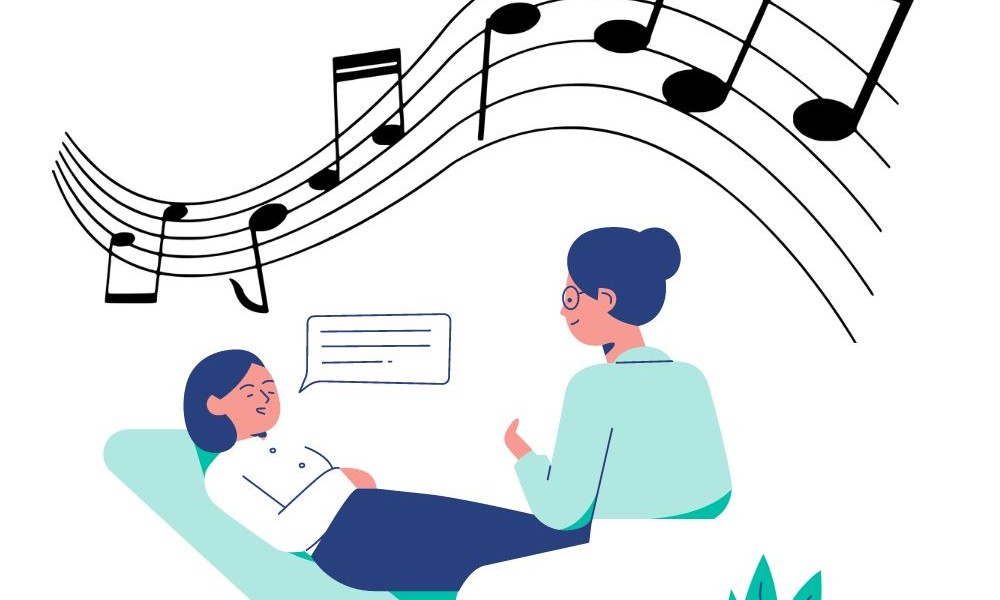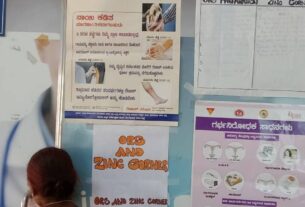Health experts say that almost all discharged Covid patients suffer from persisting symptoms of the disease.
When the government lifted the ban on travel, Simran’s* grandmother went to Haridwar. She was longing to go there but could not go due to Covid related restrictions. Little did she know it would be her last visit there, alive. She came back home with a sore throat and soon tested positive for Covid. Her journey towards recovery was hard but eventually, her test reports came back negative. Since everything seemed fine, she was discharged and sent back home. But soon her condition worsened and eventually, she succumbed to death.
Simran said that Covid killed her grandmother, “She was never the same after getting Covid. Even after she tested negative and was discharged, all her prior medical conditions worsened,” she added.
Post Covid condition, also known as long Covid, remains a challenge for healthcare workers. Scientists say that an online breathing and well-being programme can help in the recovery of patients.
Goutham Upadhya a respiratory therapist said that long Covid refers to when symptoms of Covid persist even after the intensive phase of the viral infection is over. If the patient suffers from breathlessness or requires oxygen support after 14 days of Covid infection they are diagnosed with long Covid.
Scientists have evaluated whether an online breathing and well-being programme would improve Health-Related Quality-of-Life (HRQoL) in people with persisting breathlessness following Covid.
They found that the English National Opera (ENO) Breathe intervention can improve the mental component of HRQoL and elements of breathlessness in people with persisting symptoms after Covid. Mind-body and music-based approaches, including practical, enjoyable, symptom-management techniques have a role in supporting recovery. They said that this novel intervention can be added to the toolbox for the treatment of Covid and Covid related persisting symptoms.
Swati, an anesthesiologist at All India Institute of Medical Sciences (AIIMS) catered to many Covid patients during the first and the second wave of the pandemic. She said that many people used to test negative within 14 days but still symptoms such as dry cough, high respiratory rate, weakness etc. used to persist. She said, “It does not matter how strong a person is. When you see a patient dying next to you it takes a toll on your mental health. Such people are in dire need of mental help.”
Roshan Mansukhani, a TEDx speaker and a music therapist said that a large part of the Covid battle is in our minds. Everyone is bombarded by Covid related information at all times. A majority of phone messages, TV ads, newspaper articles, city hoardings etc. disburse Covid related content. Seeing Covid allaround, at all the time can set fear within the minds of people, especially those battling the virus. This can lead to anxiety and depression.
Roshan said, “Even when you are sitting in silence there is music playing along. It is the music of our breaths as even our breaths follow a rhythm. When you listen to music, your breathing fluctuates automatically. This can be used to retrain a person to breathe.”
Goutham said that a breathing programme can be useful in the rehabilitation of patients with long Covid. Planned exercises and activities can help increase lung capacity so that the patient’s lungs can compensate for the required oxygen. He added that breathing exercises might not help reduce mortality but can positively impact a patient’s physical and psychological health.
The English National Opera created ENO Breathe in collaboration with healthcare professionals. ENO Breathe is an online breathing retraining and well-being programme. It aims to support people recovering from Covid with persistent breathlessness, with or without anxiety.
Goutham said that long Covid results in overall reduced quality of daily life. In some cases, the symptoms can last for three to six months while in certain cases the symptoms stay for an indefinite period. He added that this depends on lung pathology and the severity of the disease. Some of the symptoms of long Covid include high respiratory rate, decreased lung capacity, weakness, supplemental oxygen dependence, and fatigue.
Goutham added that the treatment for acute cases depends on the severity of the disease. It involves oxygen support—either non-invasive or invasive ventilation. It also includes the administration of steroidal drugs to reduce inflammatory reaction that happens due to the disease. Apart from that, antiviral drugs such as Tocilizumab and Remdesivir are also used. Sugar management plays a vital role in the treatment as it is highly likely to alleviate due to certain drugs.
Covid was announced as a global pandemic in March 2020, by the World Health Organisation (WHO). Shortly afterwards, ongoing symptoms—breathlessness, fatigue, joint pain, and changes in cognition and health-related quality of life—were identified in people infected with the coronavirus.
The number of people with lasting symptoms of Covid continues to rise and it is estimated that 1·5 million people have lasting symptoms of Covid in the UK alone. Up to 25 percent of individuals admitted to hospital with Covid felt they needed rehabilitation. This causes huge demand for current and emerging services to improve the lasting symptoms of Covid.
Goutham said that in India, almost all discharged patients had persisting symptoms. At least 50 to 60 percent had prolonged symptoms of Covid. Most of these people could not afford rehabilitation. Some of them followed alternative medicine and activities like yoga which do not have many quality studies on them.
Scientists have said that there are few evidence-based interventions for long Covid. They asked for further evidence to support other interventions in treating and managing Covid symptoms. They identified inflammation and obesity as potentially treatable traits that require further investigation through research. They claim that no effective pharmacological or non-pharmacological interventions exist for patients with such symptoms. The different and complex ways in which symptoms of long Covid manifest clinically, require a multidisciplinary approach. It should include pharmacological intervention, rehabilitation approaches and social and welfare support for promoting healthy lifestyle habits. This makes management of the condition challenging.



